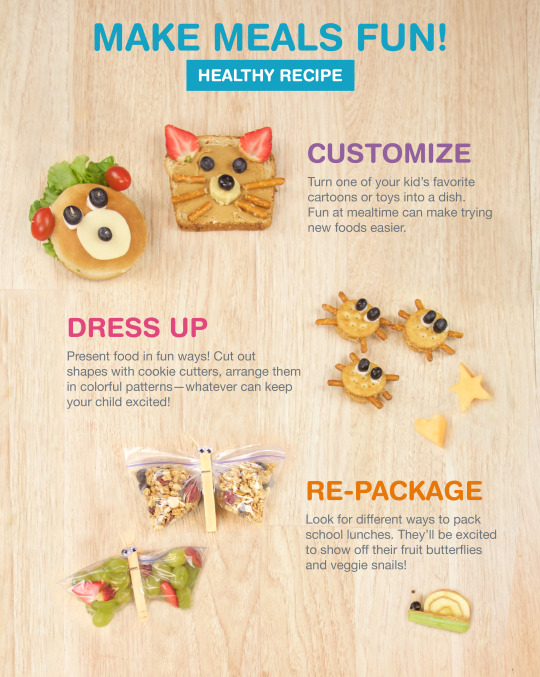
Fight the Fear of Food
If your choosy
child won’t eat, don’t force it. Don’t bribe or force them to clean his or her
plate. Negative reinforcement can enforce a power struggle over mealtime. You
want eating to be positive and enjoyable.
Understand & Encourage
Instead of
talking about whether or not new foods taste good, encourage your child to
learn about foods by talking about its color, shape, aroma and texture.
Introduce new foods by serving them with your child’s favorites. Your child
might need repeated exposure to a new food before he or she takes the first
bite.
Portion
is Key
As well as thinking about the kind of food your
kids eat, think about the portion size you are feeding them. Nutrition information on food labels is based
on a 2,000 calories per day diet and an adult serving side. Pay attention to the recommended serving sizes for your child’s age group.
By Nancy Kupka PhD, RN
Nancy Kupka PhD, RN is a Manager
of Clinical Programs and Quality at Walgreens. Dr. Kupka Has found this
to be a favorite recipe with her own children.

Sources
- American Academy of
Pediatrics. Optimizing nutrition for
toddlers. https://www.healthychildren.org/English/ages-stages/toddler/nutrition/Pages/Optimizing-Nutrition-for-Toddlers.aspx (accessed 12/21/2015). - American Academy of
Pediatrics. Portions
and Serving Sizes. What do parents need to know about serving size
and portion size? https://www.healthychildren.org/English/healthy-living/nutrition/Pages/Portions-and-Serving-Sizes.aspx (accessed 12/21/2015). - Psychology Today. Picky Eaters: Emotional or Physical
Problem? https://www.psychologytoday.com/blog/natural-remedies-emotional-health/201411/picky-eaters-emotional-or-physical-problem (accessed 2/19/2016). - Mayo Clinic. Children’s
Nutrition. Children’s nutrition: 10
tips for picky eaters. http://www.mayoclinic.org/healthy-lifestyle/childrens-health/in-depth/childrens-health/art-20044948 (accessed 2/19/2016).

